Artificial intelligence can benefit the region’s economy and workforce, President Aoun tells Greater Boston Chamber of Commerce
Aoun participated in a wide-ranging discussion about how Northeastern is preparing students for the AI revolution and how those lessons can be applied to the larger workforce and business communities.
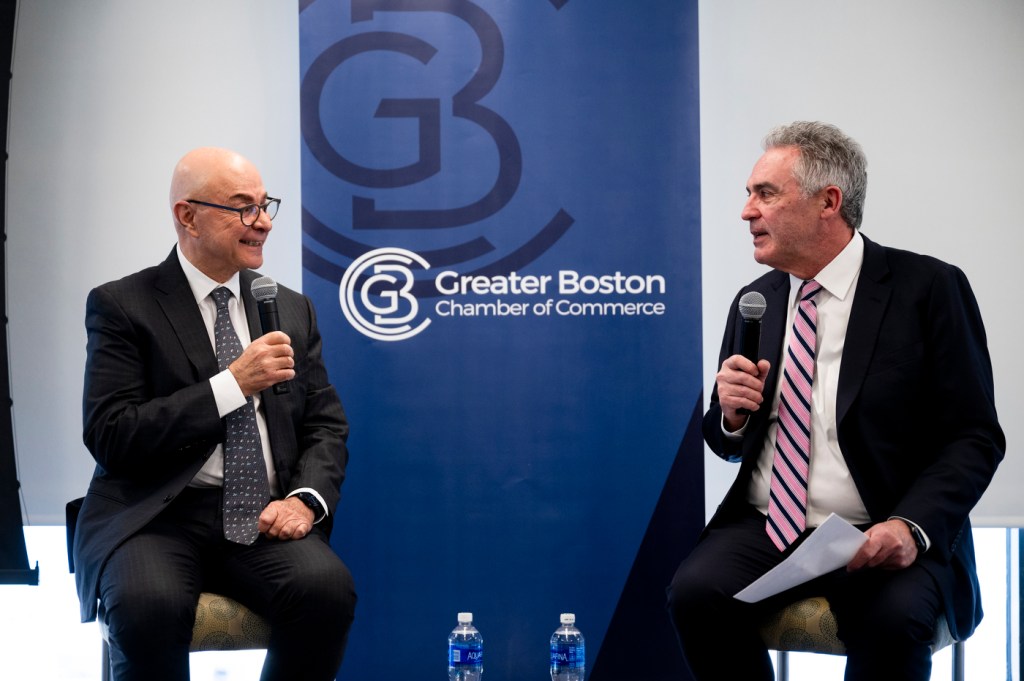
Artificial intelligence will “change everything,” Northeastern University President Joseph E. Aoun told the Greater Boston Chamber of Commerce on Tuesday.
But by emphasizing collaboration, enabling lifelong learning, and understanding the technology’s benefits and limitations, Aoun said, business leaders can treat AI as an opportunity for the region’s economy and workforce, rather than an adversary.
“We have to take it as a tool that is supporting what we do, rather than a substitute,” said Aoun, author of the book “Robot-Proof: Higher Education in the Age of Artificial Intelligence.”
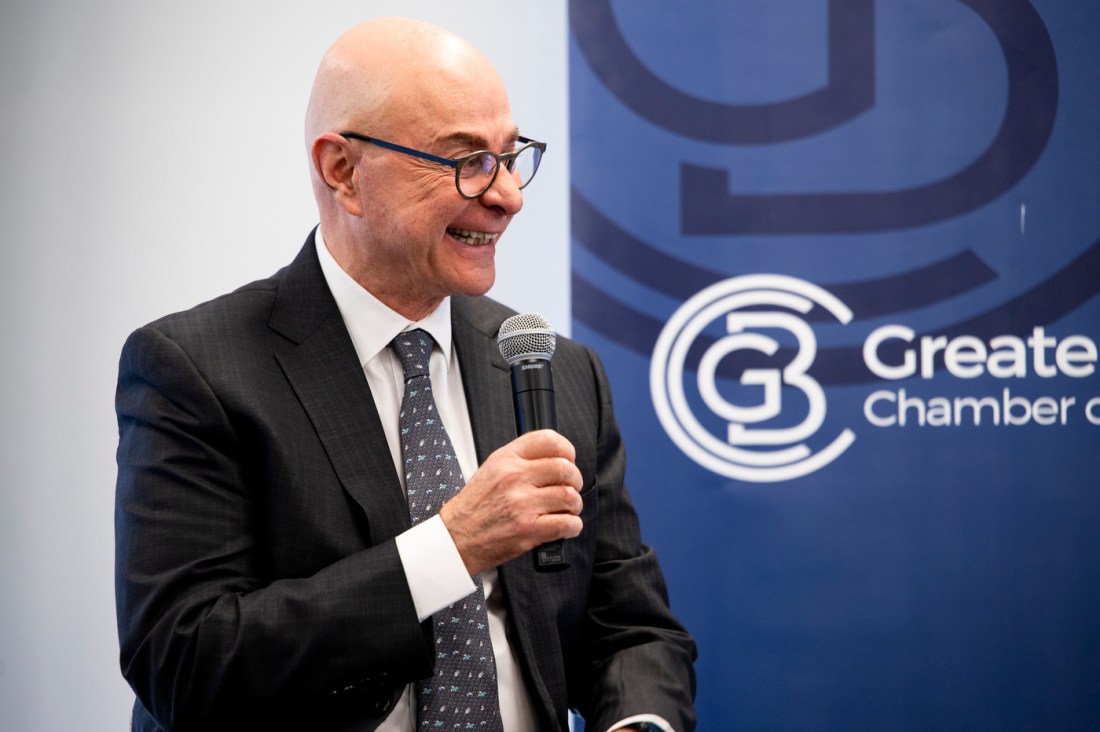
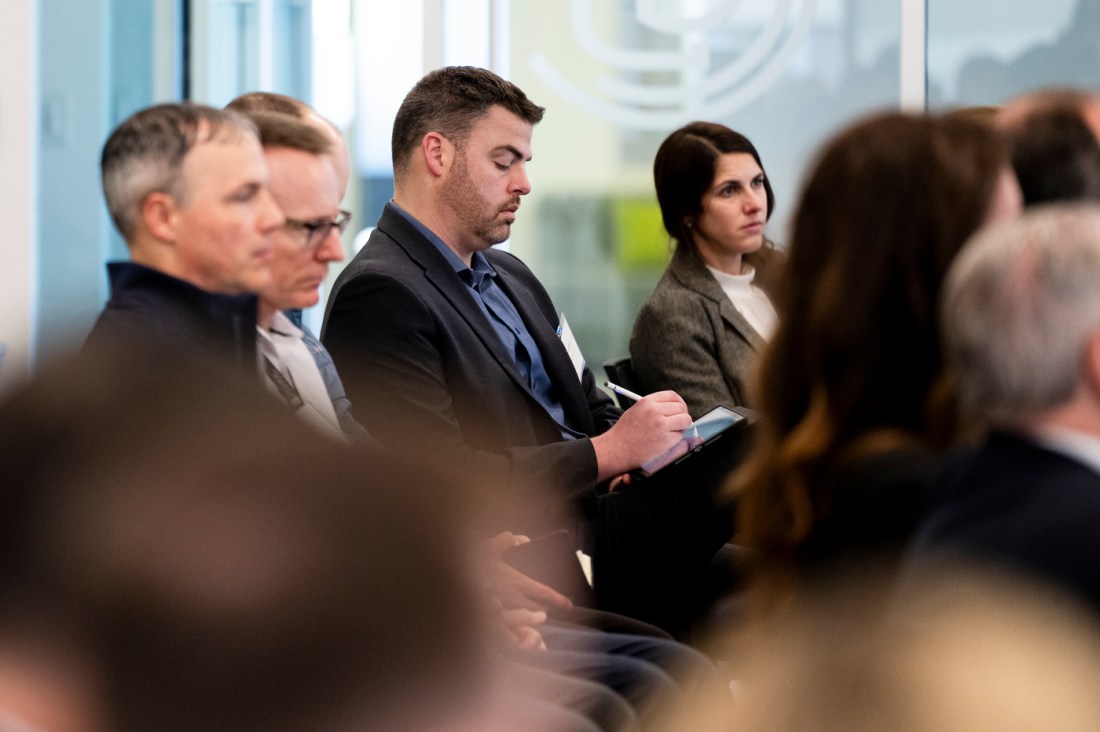
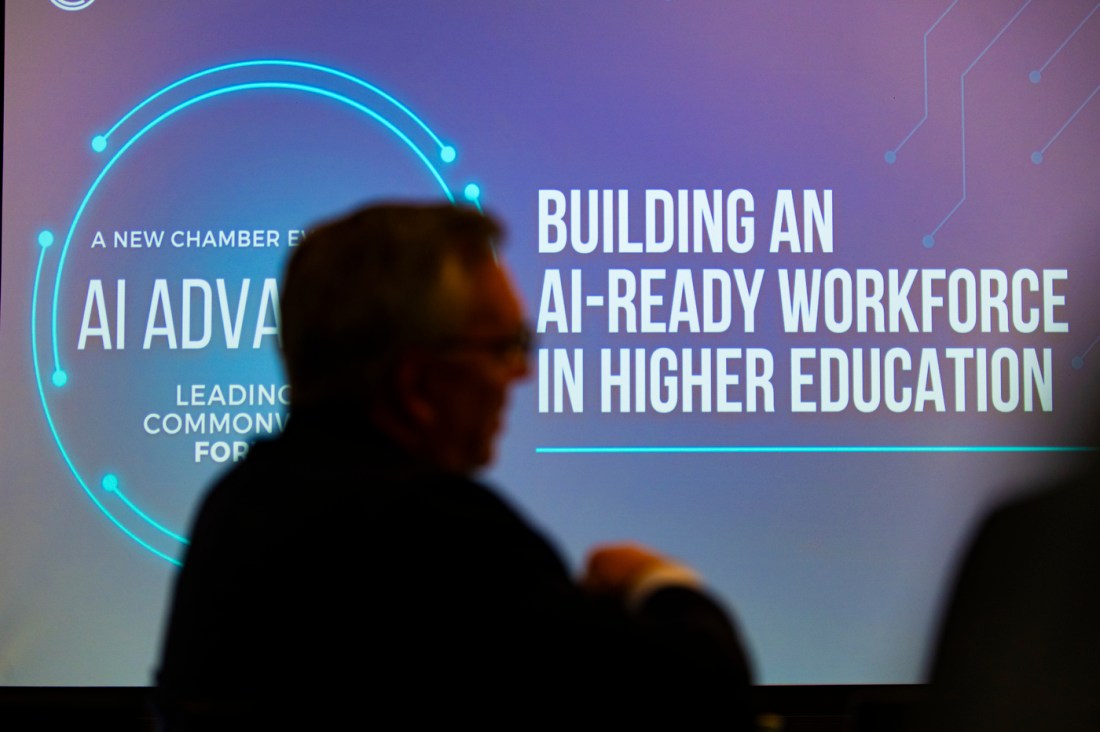
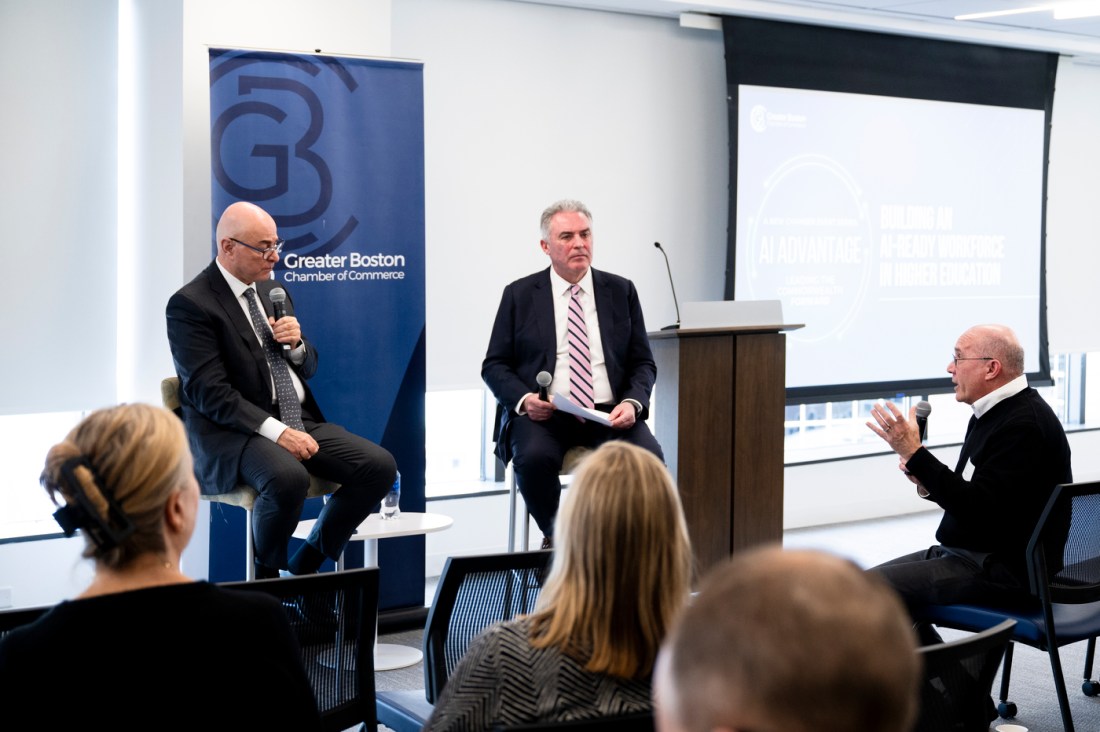
Aoun was the guest at the chamber’s “AI Advantage: Leading the Commonwealth Forward” series, which discusses the future of AI in education and the workforce.
Throughout the discussion, Aoun emphasized Northeastern’s model of lifelong and experiential learning that prepares students to be global citizens.
For instance, the university’s network of 13 global campuses offers students the opportunity to explore diverse curricula, experiences and co-ops in cities worldwide, Aoun said. It also enables Northeastern to support professionals and adult learners seeking to “upskill” or “reskill” in response to disruptions from emerging technologies like AI.
“There is a demand for talent that will be flexible and ready to reinvent itself,” Aoun said. “But in order to provide it, we cannot do it in the usual, traditional way — the ‘build it and they will come’ approach. We must provide programs and curricula that are in demand.”
Aoun highlighted Northeastern’s embrace of “humanics” as key to making students “robot-proof.” In his book, he defines humanics as the integration of three literacies: technological, data and human literacy.
This approach enables students to transfer knowledge across domains and adapt to diverse challenges, Aoun said.
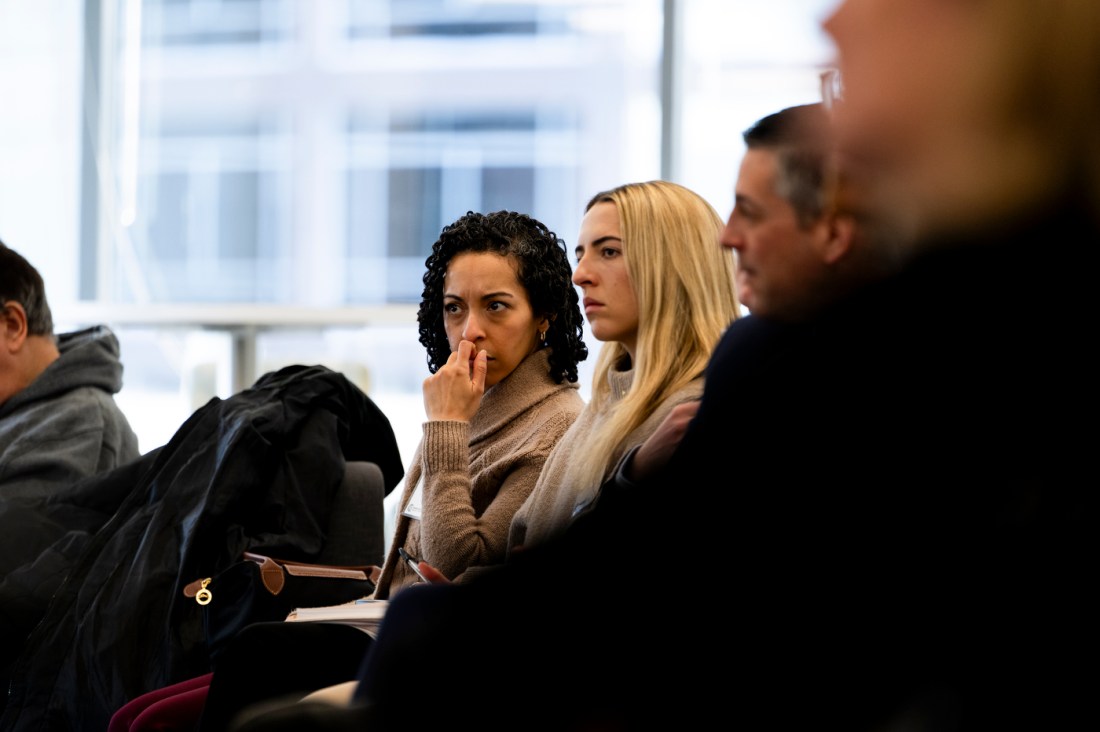
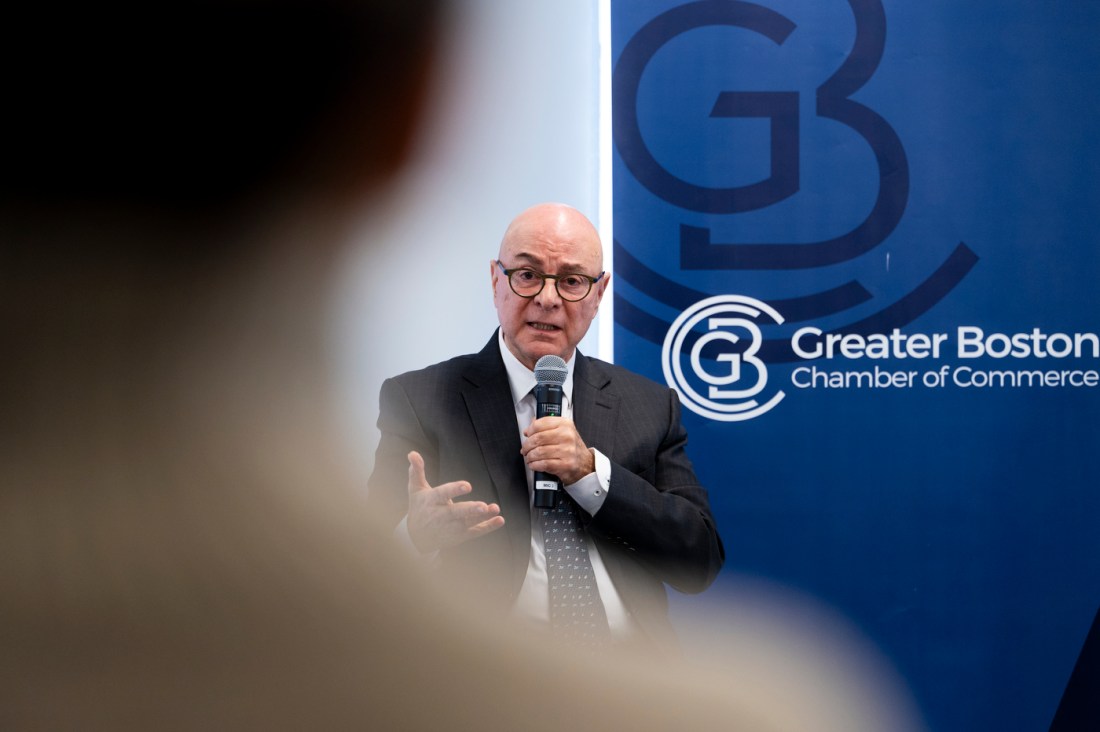
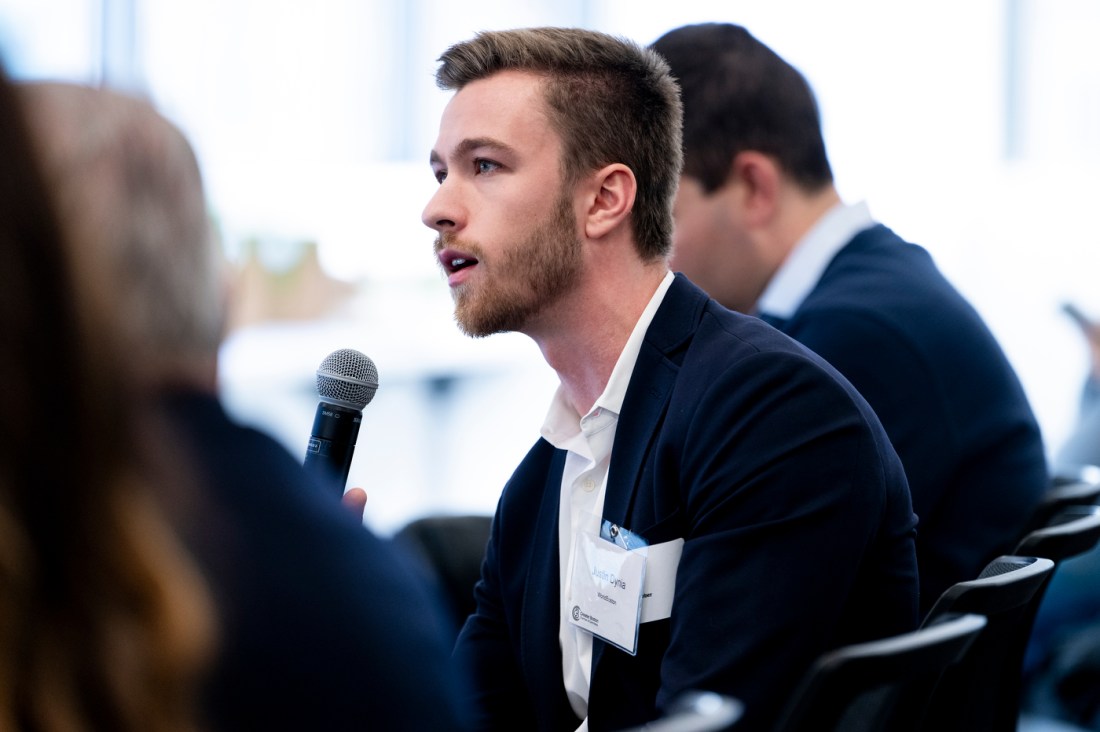
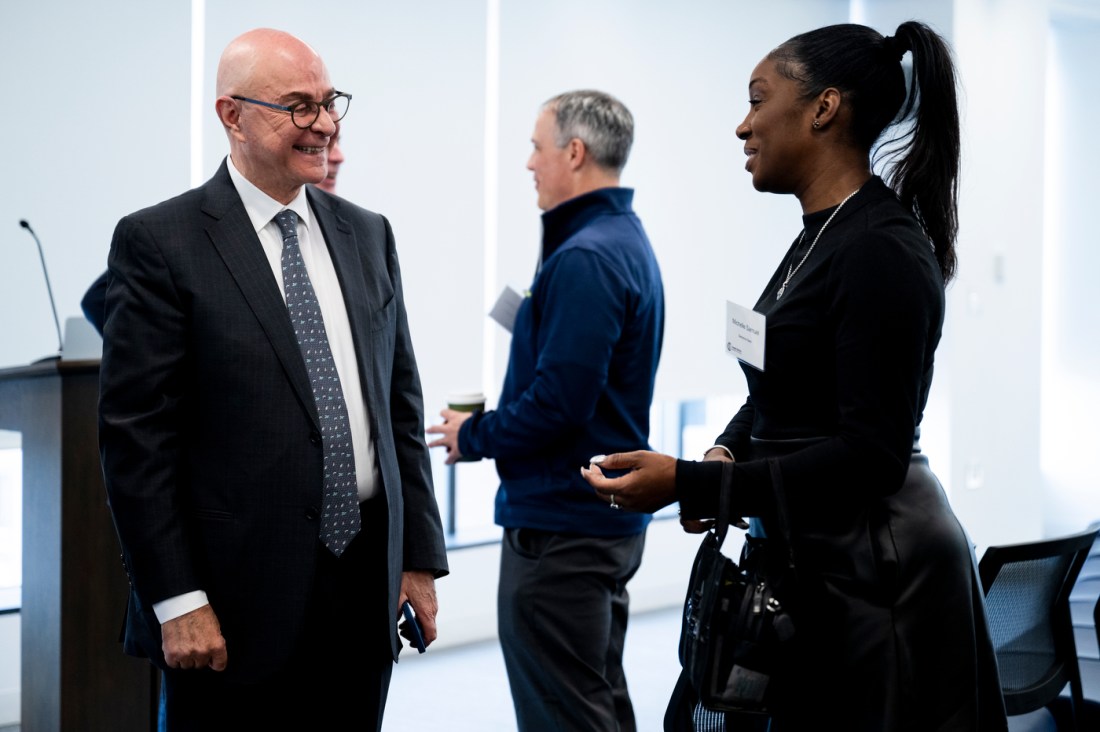
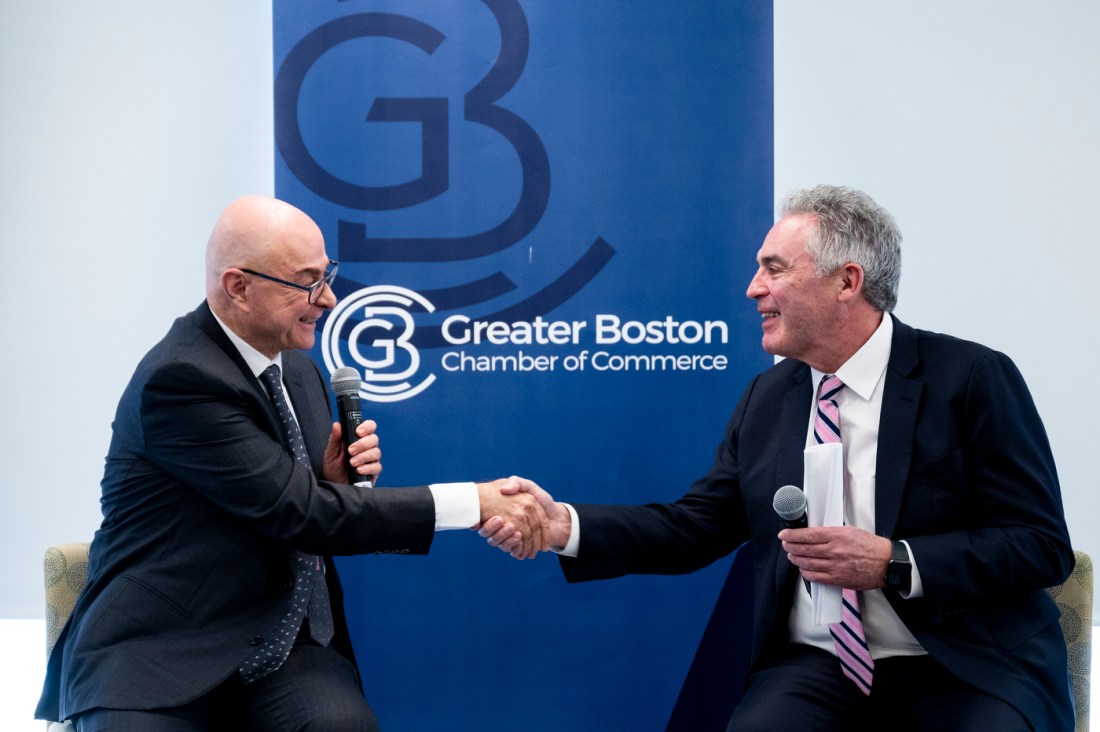
“People need to be able to complement and enhance AI rather than compete with it,” he said.
Aoun noted that others in the region can embrace lifelong experiential learning and humanics along with Northeastern. He praised the state’s recent launch of an AI Hub for convening the business, academic and government worlds.
“Universities cannot work by themselves, businesses cannot work by themselves, the government can’t work by themselves,” Aoun said. “If we can bring together businesses, government and the universities to think about how to integrate AI in society — how to minimize damage and maximize benefit — that’s a good thing.”
